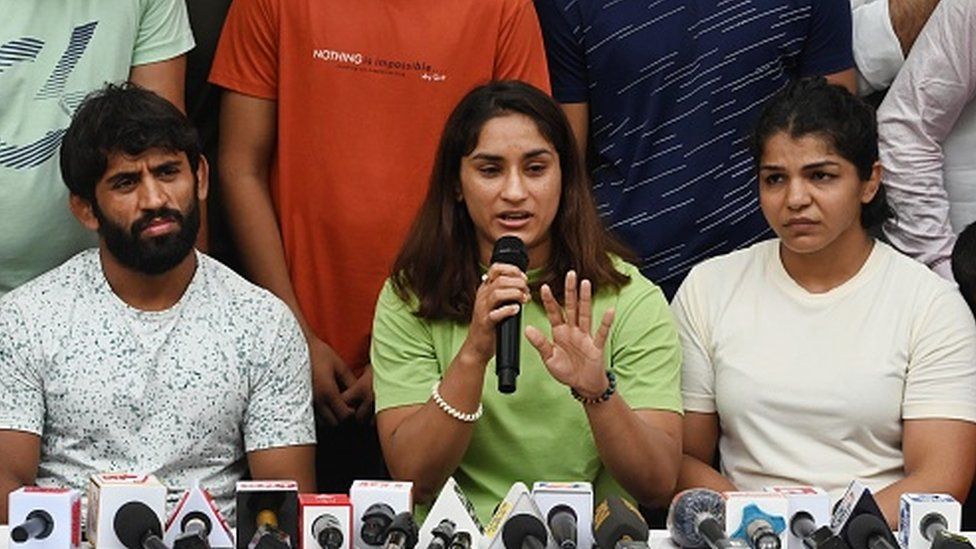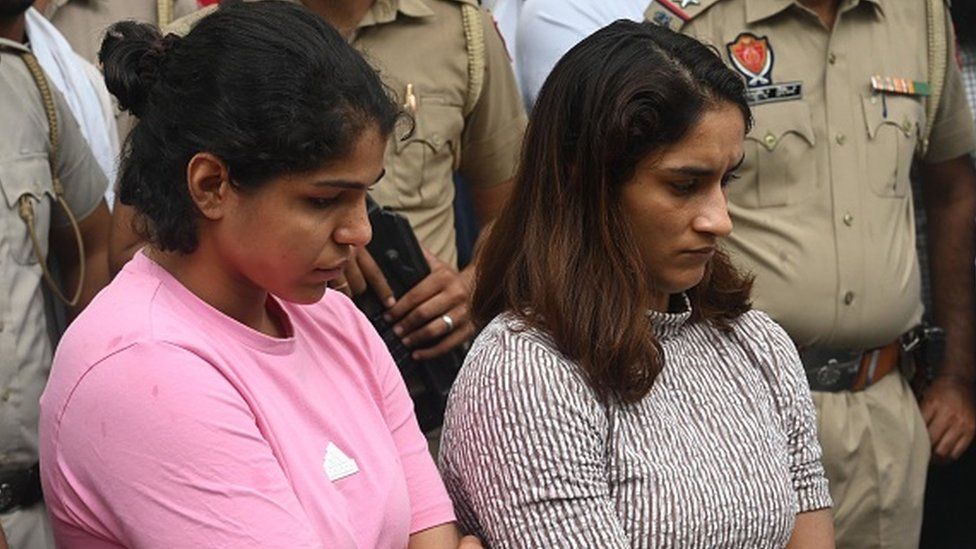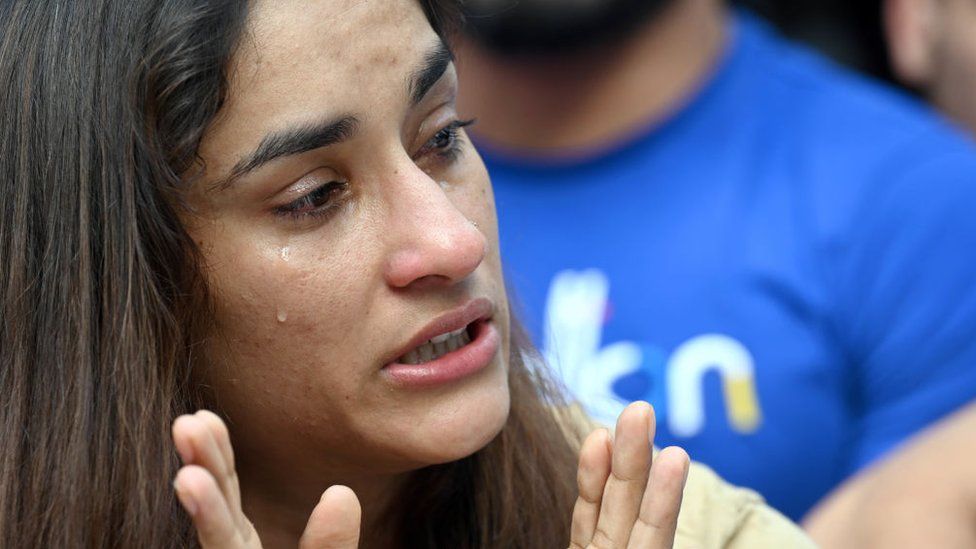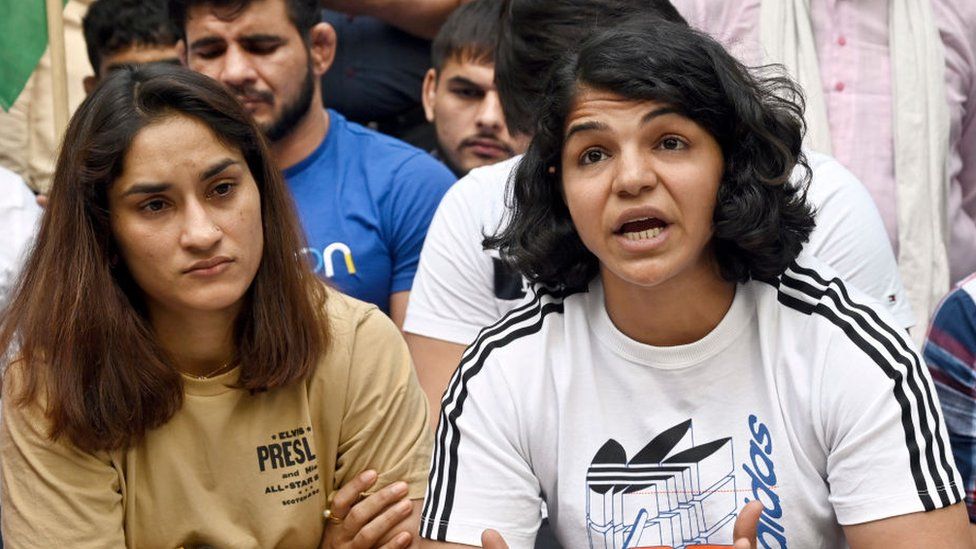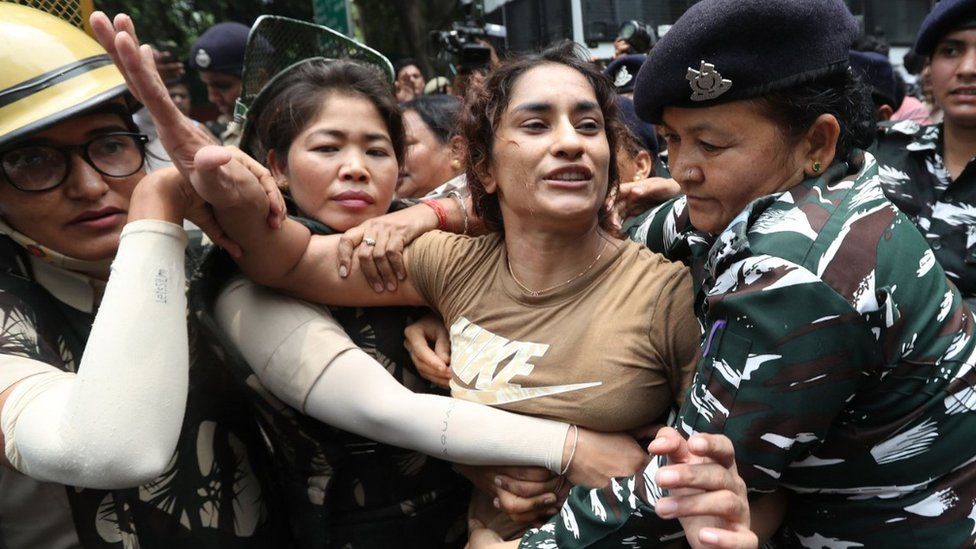
A top wrestler in India has returned two of her medals to highlight alleged sexual harassment of female athletes.
Vinesh Phogat, one of India’s most decorated women wrestlers, left the prestigious awards on a roadside kerb after she was refused permission to meet Prime Minister Narendra Modi.
She and several wrestlers accuse former Wrestling Federation of India (WFI) chief Brij Bhushan Singh of sexually harassing women wrestlers for years.
Mr Singh denies the allegations.
Ms Phogat announced this week that that she was returning the Khel Ratna award, the country’s highest sporting honour which she received in 2020, along with her Arjuna Award – both which are given by the government.
She had planned to deliver her awards to Mr Modi but was blocked by police.
Ms Phogat left her awards on a pavement in Delhi on Saturday. She said such honours had become meaningless at a time when wrestlers are struggling to get justice.
Protests by the wrestlers first began in January.
Ms Phogat – a two-time World Championship medallist – alleged that at least 10 women wrestlers had told her they had been sexually exploited by Mr Singh, who is an influential lawmaker and politician from the governing Bharatiya Janata Party (BJP).
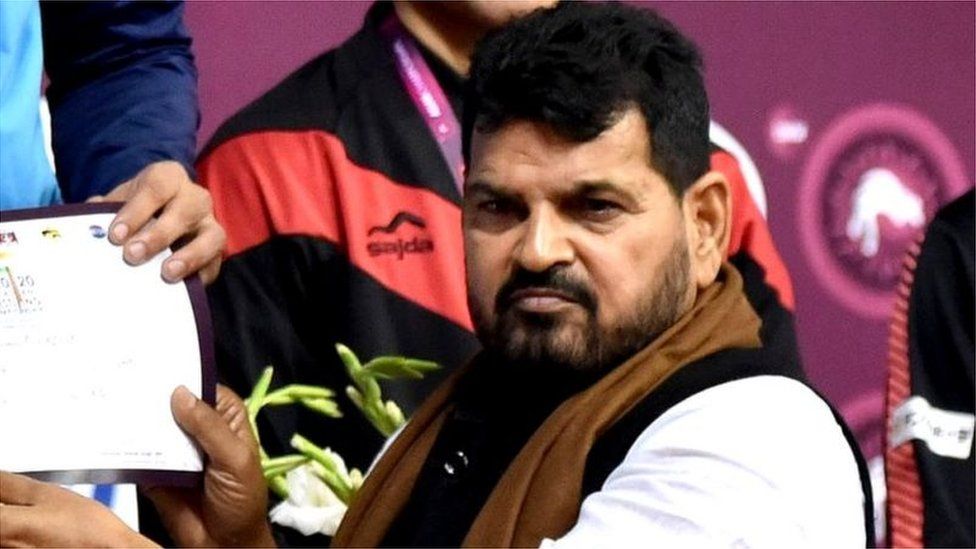
A court is hearing sexual harassment and criminal intimidation charges against Mr Singh.
Ms Phogat said she has said that she had complained about him to the prime minister in 2021.
In May, the wrestlers alleged that they were abused and assaulted by police in Delhi where they had been protesting.
A close associate of Mr Singh was chosen as the new president of the federation earlier this month, triggering more angry protests by the wrestlers.
Another prominent female wrestler, Sakshi Malik, said she was quitting the sport in protest at the election of Mr Singh’s loyalist.
Ms Phogat has won medals at the World Championships, Commonwealth Games and Asian Games.
The 29-year-old, who belongs to a family of international female wrestlers, is also a vocal critic of the sexist attitudes towards women in sports – in 2021, she told BBC Sport how she faced sexist remarks growing up and overcame gender stereotypes to forge a successful career as a professional athlete.

